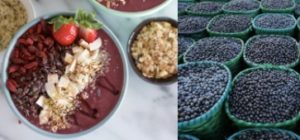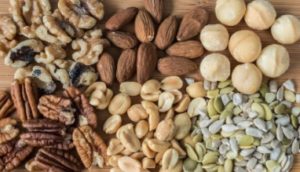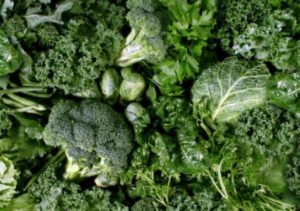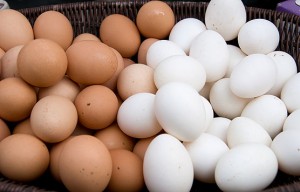To excel in your sport, you need to train consistently and give it everything you have. But, to make that possible, your body needs a wide range of nutrients.
Without the proper fuel, you won’t be able to improve in Brazilian Jiu-Jitsu or any other combat sports because much like a car needs fuel to run well and last long, so does the body.
To that end, we’ve put together this guide. In it, we’ve gone over the critical importance of good nutrition, how nutrient timing can make a huge difference, and the top five superfoods you should start eating.
The Importance of Good Nutrition For BJJ Athletes
Trainees often focus on the training side of the coin but rarely think about the other crucial element: nutrition.
While challenging and consistent training shapes up each athlete, nutrition is what makes everything possible: training productively, adapting positively, and recovering on time.
You see, training directs the physical adaptations (strength, power, explosiveness, mobility, and more) and develops your skills. But, for adaptations to come to life, your nutrition needs to make it possible. It needs to provide the body with the building blocks it needs, and it needs to provide enough energy for each of these processes to occur.
Think of it like this:
You might have a fantastic blueprint and building crew to put together a house. But, without the building materials, it can’t come into existence out of thin air. The same goes for the human body.
With that out of the way, here are five superfoods that play a role in the best diet for combat sports.
The Five Best Superfoods For BJJ Athletes
Here are five superfoods you absolutely should add to your grocery list:
-
Acai Berries

Acai berries are small fruits that boast numerous benefits. For one, they are nutrient-dense. They offer 70 calories, five grams of healthy fats, and two grams of fiber per 100 grams (1). They also provide calcium, zinc, iron, copper, chromium, potassium, magnesium, phosphorus, and manganese (2).
Acai berries are also loaded with antioxidants (3, 4). Though research is yet to draw the whole picture, this early insight suggests that acai berries might play a significant role in human health and could become a staple in any healthy diet of the future.
-
Legumes

Legumes are a class of plant foods and include beans, peas, peanuts, and lentils.
Unlike many plant-based foods, legumes earn their superfood status because they are rich in many nutrients, including much-needed fiber and protein.
So, consuming more legumes is a fantastic way to support your training recovery, health, and overall fitness results.
Interestingly enough, regular consumption of legumes appears to help lower blood pressure and cholesterol while promoting weight loss and satiety (5, 6).
-
Nuts And Seeds

Nuts and seeds boast many health benefits but are perhaps best known for being rich in dietary fiber and heart-healthy fats. Research suggests that regular consumption of nuts, seeds, and certain other foods offers cardioprotective benefits (7).
Some nuts and seeds are also rich in antioxidant compounds that can protect against oxidative stress and inflammation (8).
Nuts and seeds are also tasty, we can add them to many recipes, and they are quite satiating.
-
Leafy Green Veggies

There is something fulfilling about having a large salad bowl. It’s satiating, delivers many essential nutrients for the body, and supports our health, fitness, and well-being (9, 10).
Leafy green veggies are a rich source of zinc, magnesium, calcium, folate, vitamin C, dietary fiber, and more. Each of these nutrients plays an essential role in our health, energy levels, and athletic ability. Certain compounds known as carotenoids are also present in leafy green veggies and offer protection against certain cancers (11).
-
Eggs

For the longest time, eggs were heavily criticized by nutritional experts, dietitians, and gurus. The main argument was that eggs are full of dietary fats that raise our cholesterol and lead to cardiovascular problems down the road.
But, as research evolved and our understanding of nutrition got better, we realized that eggs were not the enemy (12). In truth, eggs appear to be one of the healthiest and most beneficial foods on the planet.
For one, eggs are rich in various vitamins and minerals, including vitamins A and B and choline, iron, phosphorus, and selenium. Eggs are also rich in antioxidants, with two notable examples being lutein and zeaxanthin. Both play an essential role in eye health (13).
Second, eggs offer some of the highest quality protein out there. Egg protein is often used for comparison when evaluating the quality of other protein sources. For reference, one medium egg offers around six grams of protein. As a BJJ athlete, it’s essential to get enough protein in your diet to support muscle mass, recovery, and performance.
And finally, eggs offer some of the healthiest fats out there. According to some research, eggs help raise HDL (good) cholesterol for some people, which can have cardioprotective effects (14).
How Nutrient Timing Fits Into The Picture
Nutrient timing is a gray area in the sports nutrition field, and you are likely to come across dozens of opinions on the matter. Most notably, people either see it as absolutely vital or worthless for our overall results.
As with most things, the truth is somewhere in the middle. While nutrient timing doesn’t play as significant a role as our nutrition’s overall quality, it is still vital and beneficial when used correctly.
For the most part, meal frequency and timing doesn’t make much of a difference. But, pre and post-training nutrition is important and needs to be considered.
Pre-training nutrition is important because it fuels your body and allows you to perform optimally (15). Having protein during that time is also beneficial because it provides your body with a steady stream of amino acids, helping kickstart the recovery process before the workout is over.
Carbs are also vital before training and even more critical before fighting. They are the primary energy source for the body and allow us to perform better for a long time. If we go into workouts and fights without any carbs, we significantly hinder our ability to function.
Post-workout nutrition is also vital because it replenishes lost glycogen and allows the body to begin repairing itself. Specifically, research recommends having a protein and a carb source at each post-training meal (16).
Author – Xavier Sales
Rank – Black Belt
Head instructor at Alpha Jiu Jitsu Academy Richmond, Sydney Australia

















